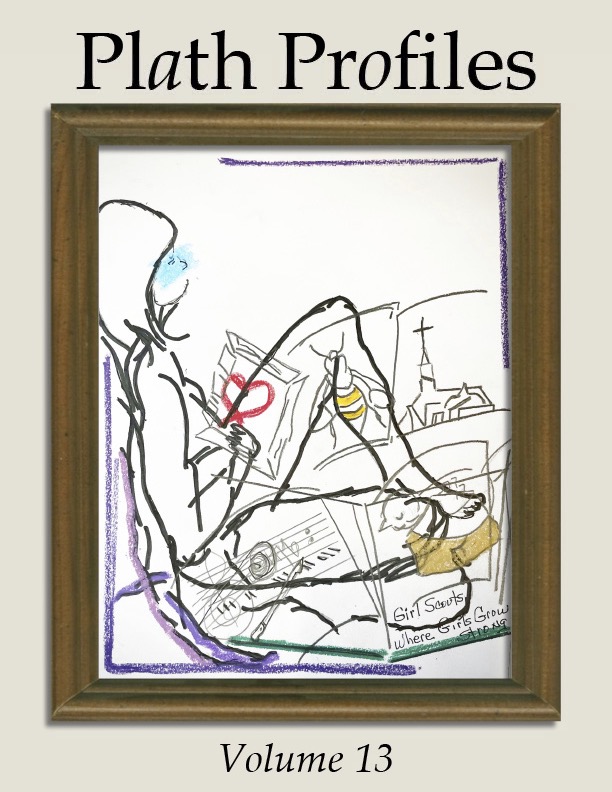Wailing on Wanting: The Traumatizing Influence of Parental Figures in Sylvia Plath’s “I Want, I Want” and “The Colossus”
Main Article Content
Abstract
Both Sylvia Plath’s poems “I Want, I Want” and “The Colossus” examine the traumatic impact of parental figures on youthful subjects. The poems appear in Plath’s first collection of poetry also titled The Colossus, which was originally published in 1960 by Heinemann. Plath wrote “I Want, I Want” two years earlier in 1958, and “The Colossus” in 1959. In the overlooked “I Want, I Want,” Plath transforms the Christian narrative of salvation into a quintessential example of extreme childhood trauma. She describes hallmark scenes of the narrative, specifically Christ’s nativity, the creation of the world, and Christ’s crucifixion to expose the traumatic existence of the Christ Child. Plath interweaves the baby, his mother, and his father, connecting them primarily through explicitly naming the parents in relation to the infant and through the limited wailing action of the child. While the mother’s failure to create as an earth goddess deity figure traumatizes her child, the father’s apathetic creation of predatory creatures displays his brutal intentions for his son. In contrast, “The Colossus” examines the attempt of an apparently adult daughter to reassemble a statue of her father despite the continuous futility of her labor. Plath describes both the perpetual work of the speaker and her evident desire for communication with her father, whose absence traumatizes the speaker. However, by the conclusion of the poem, the speaker ultimately accomplishes neither of these goals, and Plath provides no evidence of any progress. Instead, Plath employs miniature imagery to portray the speaker as childlike. Additionally, the speaker’s failure to adequately communicate with her father traumatically suspends her development. Plath ultimately creates an ever-youthful speaker frozen in the recurring experience of her failed relationship with her father. Through an analysis of these two poems, this essay complicates confessional discussions of trauma in Plath’s poetry and contributes to larger discussions on portrayals of the child in modernist poetry.
Downloads
Article Details
References
Works Cited
Balaev, Michelle. “Trauma Studies.” A Companion to Literary Theory, by David H. Richter,
Wiley Blackwell, 2018, pp. 360–371.
Bundtzen, Lynda K. “Plath and Psychoanalysis: Uncertain Truths.” The Cambridge Companion
to Sylvia Plath, Cambridge University Press, 2006, pp. 36–51, doi:10.1017/CCOL0521844967.003.
Christodoulides, Nephie. Out of the Cradle Endlessly Rocking: Motherhood in Sylvia Plath’s
Work. Rodopi, 2005.
Dobbs, Jeannine. “‘Viciousness in the Kitchen’: Sylvia Plath’s Domestic Poetry.” Modern
Language Studies, vol. 7, no. 2, Northeast Modern Language Association, Oct. 1977, pp. 11–25, doi:10.2307/3194361.
Ferretter, Luke. “’What Girl Ever Flourished in Such Company?’: Sylvia Plath’s Religion.” The
Yearbook of English Studies, vol. 39, no. 1, Modern Humanities Research Association, July 2009, pp. 101–13.
Gosmann, Uta. “Sylvia Plath's Poetics of Memory.” Memory, Haunting, Discourse, 2005, pp.
–44.
Grouw, Katrina. “Gannets.” The Unfeathered Bird, Princeton University Press, 2012, p. 139–
Hargrove, Nancy. “Christian Imagery in the Poetry of Sylvia Plath.” The Midwest Quarterly
(Pittsburg), vol. 31, no. 1, Pittsburg State University - Midwest Quarterly, 1989, p. 9–28.
Hargrove, Nancy D. The Journey Toward Ariel: Sylvia Plath's Poems of 1956-1959. Lund
University Press, 1994.
Holden-Kirwan, Jennifer. “Contemplating Faith: Sylvia Plath’s Spiritual Journey.” Christianity
& Literature, vol. 48, no. 3, State University of West Georgia, Apr. 1999, pp. 295–307,
doi:10.1177/014833319904800306.
Holy Bible: The New King James Version, Containing the Old and New Testaments. T. Nelson, 1982.
Markey, Janice. A Journey into the Red Eye: The Poetry of Sylvia Plath, A Critique. Women's
Press, 1993.
Mollinger, Robert N. “A Symbolic Complex: Images of Death and Daddy in the Poetry of Sylvia
Plath.” The Texas Christian University Literary Journal, vol. 19, no. 2, 1975, pp. 44–52.
Morris, Christopher. “Order and Chaos in Plath's 'The Colossus'.” Concerning Poetry, vol. 15,
no. 2, 1982, pp. 33–42.
Park, Jooyoung. “I Could Kill a Woman or Wound a Man: Melancholic Rage in the Poems of
Sylvia Plath.” Women’s Studies, vol. 31, no. 4, Taylor & Francis Group, Jan. 2002, pp. 467–97, doi:10.1080/00497870213657.
Park, Jooyoung. “The Splitting Maternal Body in the Poems of Sylvia Plath.” Feminist Studies in
English Literature, vol. 13, no. 2, 2005, pp. 85–109.
Plath, Sylvia. The Colossus & Other Poems. [1st American ed.], Knopf, 1962.
Plath, Sylvia. The Unabridged Journals of Sylvia Plath. Edited by Karen Kukil, Anchor Books,
Ramazani, Jahan. “‘Daddy, I Have Had to Kill You’: Plath, Rage, and the Modern Elegy.”
PMLA: Publications of the Modern Language Association of America, vol. 108, no. 5, Modern Language Association of America, Oct. 1993, pp. 1142–56, doi:10.2307/462991.
Rees-Jones, Deryn. “Liberty Belles and Founding Fathers: Sylvia Plath's 'The Colossus'.”
Women: A Cultural Review, vol. 12, no. 3, 5 Nov. 2010, pp. 276–291, doi:https://doi.org/10.1080/09574040110097283.
Rietz, John. “The Father as Muse in Sylvia Plath’s Poetry.” Women’s Studies, vol. 36, no. 6,
Taylor & Francis Group, Aug. 2007, pp. 417–30, doi:10.1080/00497870701493369.
Rippl, Gabriele. “Colossal Wrecks: Percy Bysshe Shelley's 'Ozymandias' and Sylvia Plath's 'The
Colossus'.” Litteraria Pragensia, vol. 8, no. 15, 1998, pp. 58–68.
Sanchez, Maria C. “‘I Have Tried and Tried’: Culpable Mothers and Maternal Guilt in Sylvia
Plath.” Theory@Buffalo, 1996.
Self, S. “The Effects and Consequences of Very Large Explosive Volcanic Eruptions.”
Philosophical Transactions of the Royal Society of London. Series A: Mathematical, Physical, and Engineering Sciences, vol. 364, no. 1845, The Royal Society, Aug. 2006, pp. 2073–97, doi:10.1098/rsta.2006.1814.
Smith, Pamela. “Architectonics: Sylvia Plath’s ‘Colossus.’” Ariel, vol. 4, no. 1, University of
Calgary, 1973, p. 4–21.

